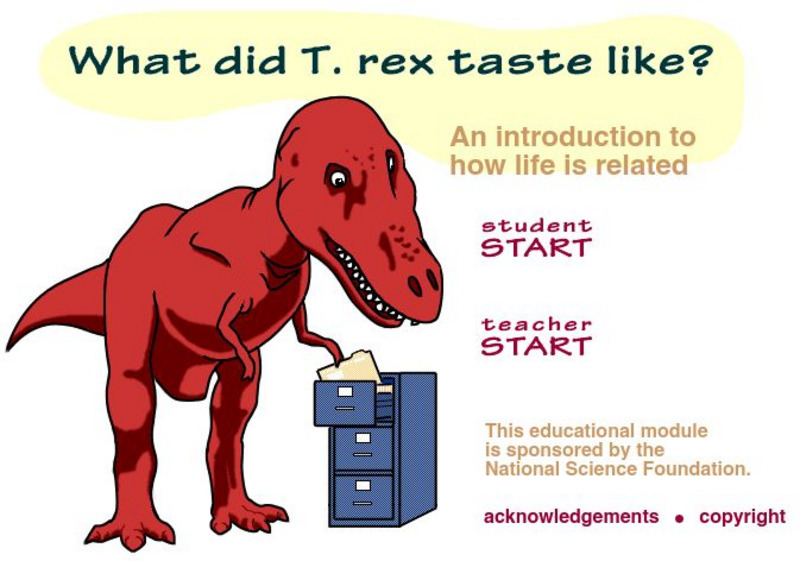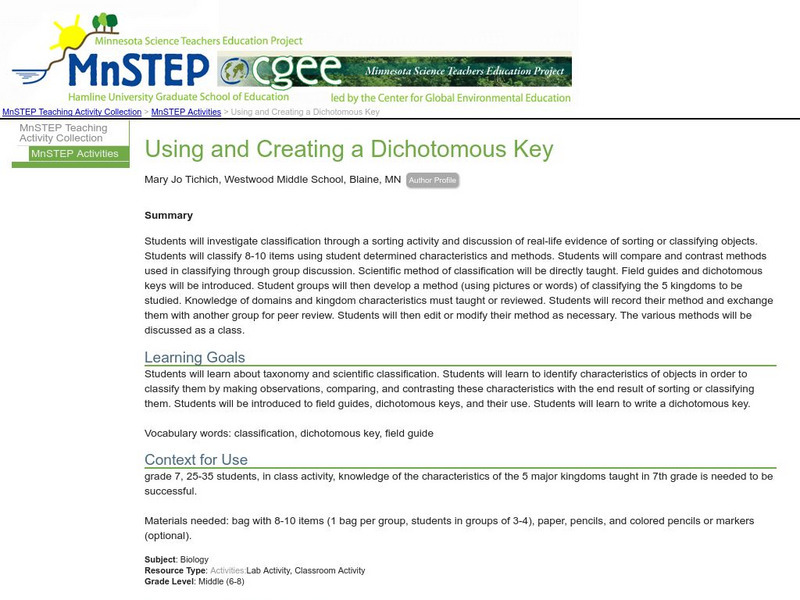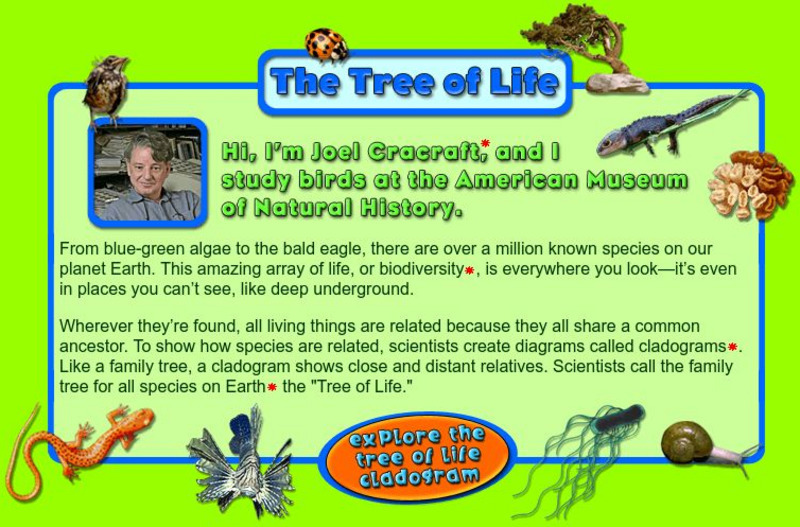Hi, what do you want to do?
Sophia Learning
Sophia: Three Domains/ Five Kingdoms /Taxonomy: Lesson 3
This lesson presents the organizational categories of living things. It is 3 of 3 in the series titled "Three Domains/ Five Kingdoms /Taxonomy."
Sophia Learning
Sophia: Three Domains/ Five Kingdoms /Taxonomy: Lesson 2
This lesson presents the organizational categories of living things. It is 2 of 3 in the series titled "Three Domains/ Five Kingdoms /Taxonomy."
University of California
Ucmp: What Did T. Rex Taste Like?
The title could be slightly misleading for this site. It is actually a teaching and learning module on the science of cladistics. As they go through the module, students will increase their understanding of, and appreciation for, the...
E-learning for Kids
E Learning for Kids: Science: Caribbean Sea: Mexico: What Is Classifying?
Christina wants to classify all kinds of different things. Help her sort things into main groups.
Other
Alternative Classifications of Life
The Linnaean system (1758) classified all macroscopic living organisms as either Animals or Plants, based on whether they moved [anima, with a soul] or not. Thus, Fungi were included as plants. With the invention of the microscope and...
Alabama Learning Exchange
Alex: Wanted Dead or Alive!
In this lesson students will identify the characteristics of living and nonliving things.
Tree of Life Project
The Tree of Life Web Project
The Tree of Life Web Project contains information on living organisms including their history and characteristics. Over 3,000 web pages are linked together uniting all living things.
ClassFlow
Class Flow: Animal Classification
[Free Registration/Login Required] This flipchart introduces the five kingdoms of animal classification. It includes Activote questions to assess understanding of the topic.
ClassFlow
Class Flow: Animal Kingdom
[Free Registration/Login Required] This flipchart introduces students to the animal kingdom, differentiating between vertebrates and invertebrates.
Science Education Resource Center at Carleton College
Serc: Using and Creating a Dichotomous Key
Students will investigate classification through a sorting activity and discus real-life evidence of classifying objects.
Utah Education Network
Uen: Science Vocabulary Game
Fourth graders will play a review memory game with Utah's Grade 4 Science Standard V vocabulary words during this lesson. Words associated with living things and classifications of living things are included in this lesson.
American Museum of Natural History
American Museum of Natural History: O Logy: The Tree of Life
Learn about the diversity of species on Earth by exploring a cladogram, a graph-like tree of life that illustrates relatedness among species. Includes instructions for reading cladograms and a pie chart that summarizes the percentages of...
ClassFlow
Class Flow: Binomial Nomenclature
[Free Registration/Login Required] This flipchart introduces the classification system and binomial nomenclature. It includes Activote assessment questions.
CommonLit
Common Lit: "Strength in Numbers" by Bird Brain Science
A learning module that begins with "Strength in Numbers," accompanied by guided reading questions, assessment questions, and discussion questions. The text can be printed as a PDF or assigned online through free teacher and student...
Other
Science4 Us: Animals
In online and offline activities, students broaden their understanding of animals by learning to identify and classify animals into six categories: mammals, birds, fish, amphibians, reptiles, and invertebrates.
ClassFlow
Class Flow: Vertebrates
[Free Registration/Login Required] This flipchart is about vertebrate animals. It contains information about the 5 types of vertebrates: fish, amphibians, reptiles, birds, and mammals. The flipchart contains links to websites and...



















